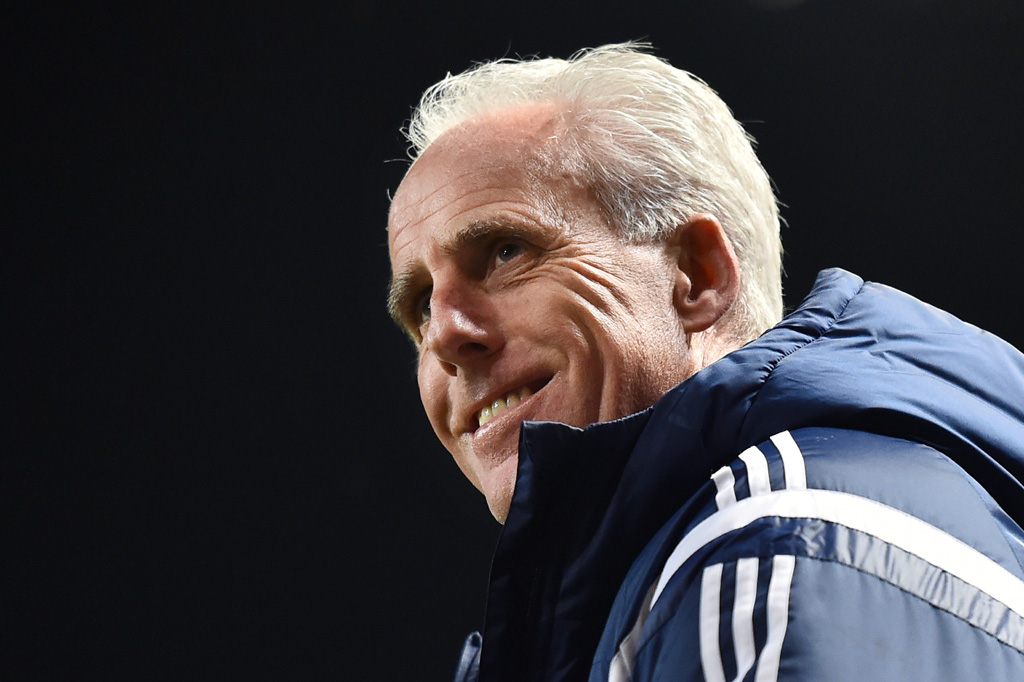When Mick McCarthy was appointed manager of the Republic of Ireland on November 25 2018, most fans breathed a sigh of relief, as McCarthy was seen as a safe pair of hands to guide Ireland through the process of qualifying for Euro 2020 – especially following on from the dismal tailend of Martin O’Neill’s reign. The other faction, those who held that Dundalk manager, Stephen Kenny, should have been given the job, had their fears allayed when it was announced that he would be made manager of the under-21s before taking control of the senior squad in two years’ time. This double appointment seemed to be a sign of a rare form of long-term planning and vision from the usually short-termist Football Association of Ireland (FAI). How then does the future of Irish international football look, now that the McCarthy and Kenny era has begun? Quite bright, it would appear.
In the immediate future, Ireland’s primary goal will be to qualify for the newly-expanded Euro 2020 and the campaign to do so got off to a winning start in the second McCarthy era, with victories over Gibraltar and Georgia. While Ireland have not exactly beaten the cream of European football, the main takeaways from the campaign’s opening skirmishes have been largely positive. The match against Gibraltar was an admittedly scrappy one, with both the poor playing surface and strong winds creating difficulties for both sides. While Ireland dominated in possession, as expected when playing the 194th-ranked team in the world, they failed to break down a composed home side, with the game feeling all too familiar to the dreary football played under O’Neill. The game against Georgia was a different beast entirely, and it will fill Irish fans with confidence for the future. Ireland were more attacking than they’ve been since Euro 2016 and created a plethora of chances against the Georgians. They pressed high, tried to pass with a bit more imagination, and generally seemed more confident than they had in years. The worry will be, however, that Ireland still needed to rely on a sublime free-kick from Conor Hourihane to break the deadlock. It seems that a lack of scoring ability still plagues a side which scored only four goals in all of 2018.
Another concern will be some of the selection choices made by McCarthy. Matt Doherty and Seamus Coleman both started on the right-hand-side against Gibraltar, in an experiment which McCarthy afterwards admitted didn’t really work. When it came to the Georgia game it was Doherty, arguably Ireland’s best performing player at club level this season, who was chosen to sit on the bench. This move, along with the decision to start veteran Glen Whelan, freshly unretired at McCarthy’s request, will raise some eyebrows among those who feel that Ireland need to be less conservative with their selections and integrate more fresh blood. With Stephen Kenny managing the under-21s at present, it is hoped that a fresh generation of Irish football stars will be able to make the breakthrough into the senior team.
“It has been a constant feature of Irish football in recent years that Ireland have been a very low scoring team.”
Ireland were recently drawn against Italy, Luxembourg, Sweden, Armenia, and Iceland in Group One for their UEFA U21 European Championship qualifying campaign, and Kenny’s first game in charge was a 1-0 victory against Luxembourg at Tallaght Stadium. Kenny will be in charge for seven of their remaining eight qualifying games and will hope to prepare himself for the big job by guiding the Young Boys in Green to a successful qualification. He will be encouraged by the plethora of talent available for selection for the under-21s, and Kenny will be hoping too that some of those players will be able to transition with him into the senior squad when his tenure begins in 2020. Adam Idah scored a brace against Luxembourg and the young striker is seen as an exciting prospect in Norwich where he plies his club trade. He regularly impresses for the canaries at under-23 level and there have recently been calls for him to be given a chance to aid the senior team in their chase for Premier League promotion. Caoimhín Kelleher started in goal and he is seen as the future Ireland number one by most pundits. He has featured in Liverpool’s Champions League squad this season and Reds manager Jurgen Klopp has spoken extremely highly of the Cork youngster. All in all, it seems that the components are there for Ireland to have a successful future – huge talent in their youth setup, an innovative manager on the way, and relatively low expectations among the fanbase.
Of course, there remain significant hurdles which Ireland are going to have to overcome. Firstly, they will need to find some sort of goal scoring form. It has been a constant feature of Irish football in recent years that Ireland have been a very low scoring team, with 0-0, 1-0, and 1-1 being an all-too-common score line. While Ireland’s defensive prowess is something to be admired, and has been the side’s bedrock through successive management teams, Kenny is going to have to find a way to overcome the culture of praising the “effort” Irish players put in. In professional football, putting in 110% in every game is the minimum that’s required, and fans need to stop being happy with Ireland simply “trying”. Ireland need to start playing confident, assured football, the sort of football that their level of ability demands, if they are to progress in the modern game. That’s not to say that fans should expect Ireland to start beating teams ranked 20 places higher than them, but the public deserves a team that at least tries to play exciting, quick-tempo football, and is capable of reliably competing with teams around and above their level. With McCarthy a short-term, steadying appointment, it may not be until Kenny’s ascension that the fans finally see some real progress.






